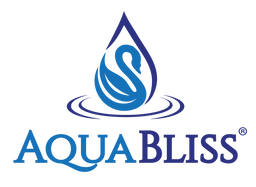Your Go-To Resource for Fun Water Facts and Water Filtration at Home
Hard water gets a bad rap. Yes, it dries out your skin, makes your hair frizzy, and breaks your nails. But the hard minerals in tap water should be the least of your health concerns. There are more than 300 contaminants in unfiltered water that pose a serious health risk. Every time you shower or drink water, you expose your body to chlorine, pesticides, and rocket fuel chemicals.
If you’re concerned with water quality and are interested in cool water facts, you’ve come to the right place. At AquaBliss, we provide educational water blogs to increase your awareness and help you lead a healthier life. From discussing fun facts about water and the effects of hard water on your skin and hair to explaining why you need at-home shower water filtration systems, here you can find all the information you need about healthy water.

If your shower head is looking a little crusty, spraying water sideways, or just not giving you t...
Read more »
Orange stains in your shower are one of the most frustrating things you will ever encounter as a ...
Read more »
We all want to feel cleansed and nourished after a soak in the shower, but new technologies are m...
Read more »
When you bring a cute little puppy home, you want to dote on your new furry friend. This means en...
Read more »
Is there anything more refreshing than a warm soak in the shower, or a cool five-minute wash on a...
Read more »
If you've been wondering what is involved in everything shower, the answer is simple. It is a com...
Read more »
Yes, you can shower with your baby, as long as you take the right precautions, of course. Showeri...
Read more »
Experiencing a weak water stream or slow water flow during the shower? Low water pressure is a co...
Read more »
Hard water leaves calcium‑ and magnesium‑rich residue that shows up as chalky water stains on sho...
Read more »Discover the Importance of Water Purity Around Your Home
When we talk about water purity, most people think of drinking water. It’s true that what you eat and drink gets absorbed by the body. But ingestion is not the only way your body takes in nutrients or toxins. During a hot shower, your body absorbs the harmful chemicals in tap water through inhalation and skin absorption, making unfiltered shower water a health hazard.
While most people know that drinking chlorinated water is not good for their health, many are unaware of these water facts: showering in chlorinated water can trigger asthma flare-ups, produce reproductive disorders, and may even increase the risk of cancer. And this is why many of our blogs discuss the benefits of water filtration at home so you can make informed health decisions.
Read AquaBliss Blogs About Water to Boost Your Wellness
Are you looking for tips to purify your water? Or perhaps you want to learn how to test your water for hardness? Whatever water-related content you’re looking for, you can find it on our water facts blogs. Read AquaBliss blogs to learn how at-home water filtration solutions can boost your health and happiness.


